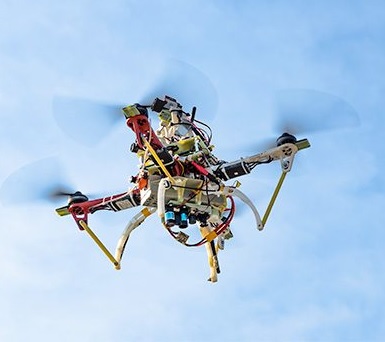
UNICEF has teamed up with the Malawi government to gauge the possibility of using unmanned aerial vehicles (UAVs) for humanitarian efforts. Christopher Fabian, who is the Principal Adviser of the UNICEF Office of Global Innovation, says developing the corridor to suit humanitarian needs can significantly improve the agency’s productivity and ability to deliver services.
The recent collaboration and drone testing of the corridor is the first in Africa, and one of the very few worldwide of its kind. The intent is to use the drone to deliver services in places made inaccessible due to combat or environmental conditions—which harbor people who need assistance most. The tests will run in the Kasungu Aerodrome region of central Malawi for at least a year, with an expected completion date of June 2018.
Previously, a pilot project in Malawi took place in March 2016, which determined great potential in using drones to transport dried blood samples for early infant diagnosis of HIV.
Responses made by UNICEF to floods in Malawi between February and April 2017 also presented the opportunity to send out humanitarian drones, specifically to gather aerial footage that helped assess needs of different regions. The flights, thus, allowed efficient, cost-effective assessments of the damage generated by natural disaster.

Based on these previous projects, the Humanitarian UAV Testing Corridor has created three main areas of focus for further development. First is imagery, which is the generation and analysis of aerial images during national crises, including situations requiring active monitoring of natural disasters with clear barriers on land. Second is connectivity, which centers on the possibility of using UAVs to extend Wi-Fi or cellphone signals across unpleasant terrain, especially during emergencies. Last is transport—the delivery back-and-forth of small supplies such as emergency medical supplies, vaccines, or samples for laboratory diagnosing.
Plans for the project were first announced in December of 2016, which prompted a total of 12 companies, universities and non-governmental organizations from every part of the globe to declare interest in using the corridor to assist UNICEF in its undertaking. Examples include GLOBHE in Sweden, UCANDRONE in Greece, and Precision in Malawi. The merging of the private sector, government, and local engineers ensures that optimum technological solutions are developed to support millions of distressed children worldwide.
But the buck does not stop there. UNICEF is also teaming up with global superstar Beyoncé, to help better the lives of African children. The singer has begun the partnership by launching a joint initiative with UNICEF titled BEYGOOD4BURUNDI—which aims to supply water to dehydrated children in Burundi.
The partnership will last for multiple years, through a focus on programs that strive for improving the quality and access of water in regions where more than half the population struggles to find a supply of clean water. Oftentimes children in these regions are forced to skip entire days of school to venture on mile-long searches for water—and usually with little to no avail. Thus, an adequate supply of safe water is made even more vital to the physical and psychosocial health of these children.
Through its collaborations, UNICEF is proving the effectiveness of joining forces with other powers to exhibit the most innovative ideas, services and assistive projects. With ongoing research, dedication, and the strength from uniting together, we can all successfully and progressively fuse creative energies to empower the voiceless, alleviate suffering and save millions of lives across the globe.
David Anderson says
Excellent article. TheEconomist did an article about this some months ago. They argue that while drones for things like blood samples, vaccines, and medications etc are great, they don’t replace the need for real infrastructure (particularly roads and electricity) in rural Africa..
Hassan Elhage says
Thank you for reading! That’s very interesting, it definitely does not solve all problems but is an example of how advances in technology can be good, though limited in impact.